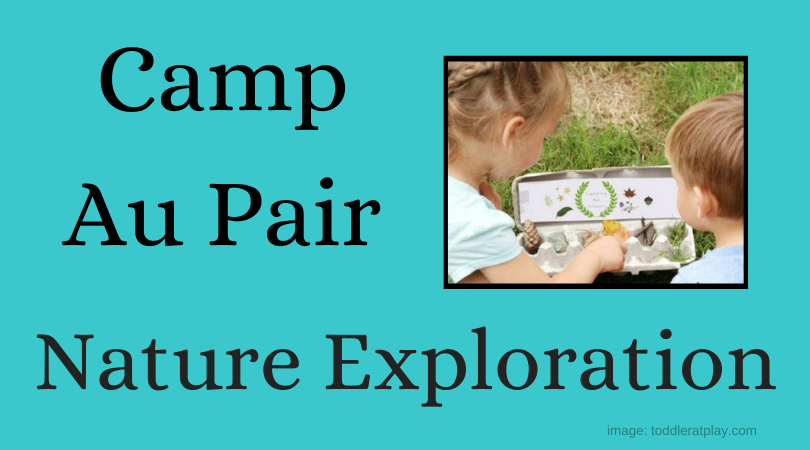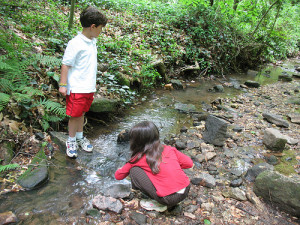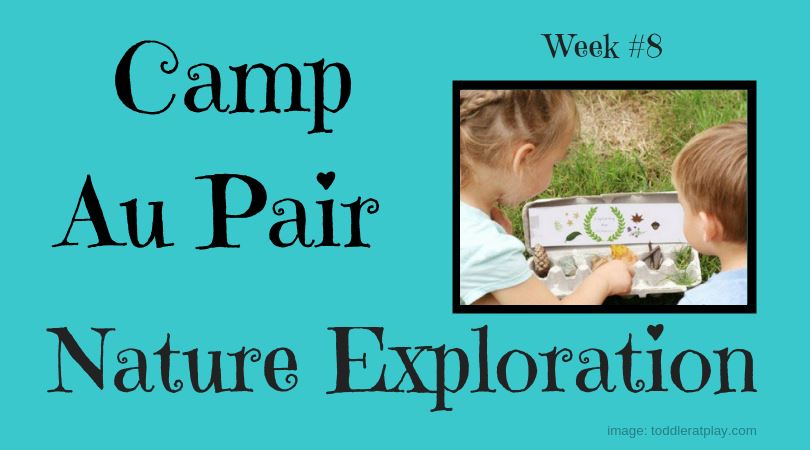This week’s Camp Au Pair theme is Nature Exploration.
Crafts, recipes, activities, and games can all be found here on the Camp Au Pair – Nature Exploration pinboard.
Field Trips can be a great way for kids to learn and have new experiences. You can start observing nature at any local park or in your own backyard. If you want to take it a step further, Below is a list of other local places to go explore nature. Get permission from your host parents before any outings and check websites before you go for hours and information.
Safety note: When coming inside after you have been outside exploring nature, it’s always a good idea to check the children and yourself for ticks. For more information, take a look at this post.
- Aviary
- Farm
- Natural History Museum
- Nature Preserve
- Park
- Wildlife Rescue Center
- Consider joining the Free Forest School to find outings near you.
Virtual Field Trips:
Webcams – You can do a Google search for websites with webcams that allow you to observe nature.
- Nature.org has lots of webcams from all over the country including Brown Bear Cam, Puffin Boulder Berm, and Bella Diamond Hummingbird Nest
- Wildlife Trusts has a wide variety of webcams including Barn Owls, Bats, and Birdfeeder
Videos – Look for fun videos on YouTube about nature.
Books – Check your bookshelves and/or stop by your local library and look for books on nature. You can also find many read aloud book videos on YouTube. Here are a few to get you started.
Image: toddleratplay.com




